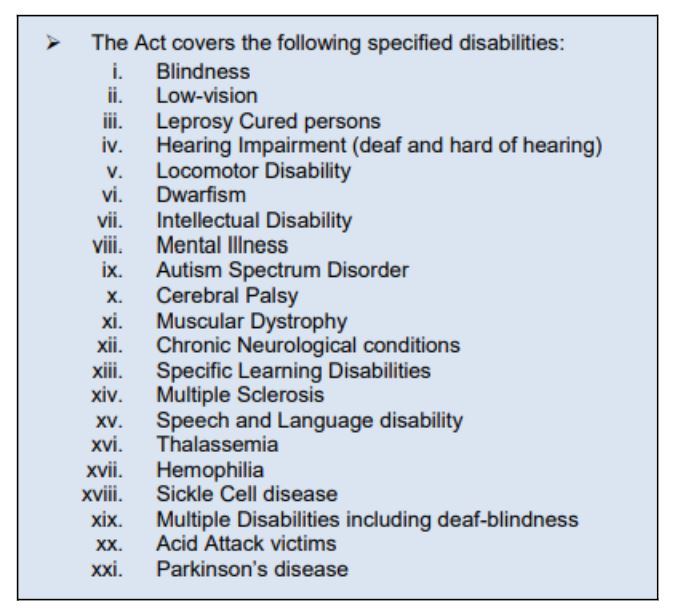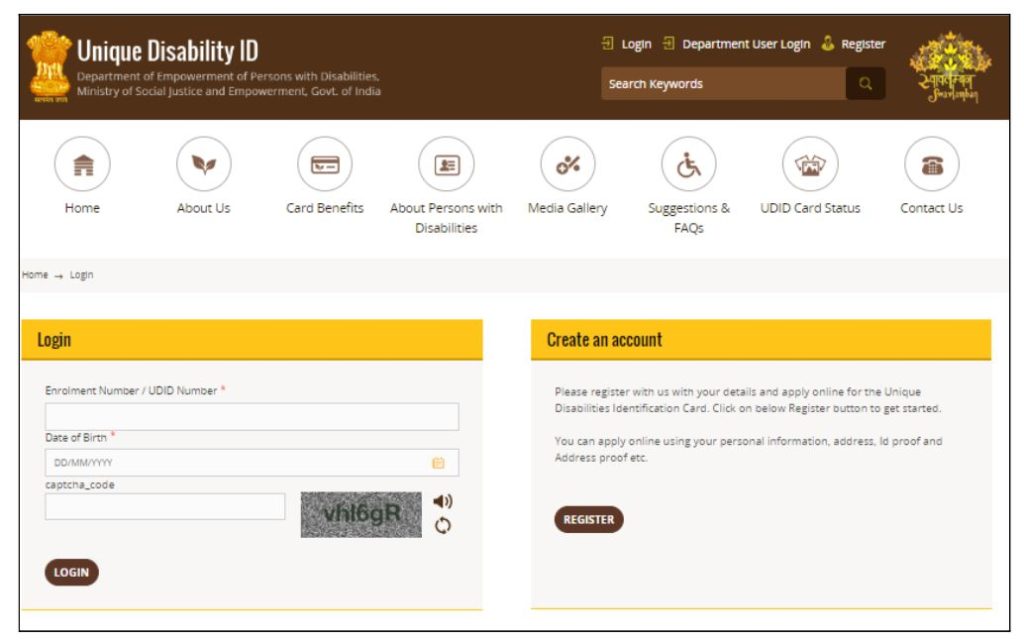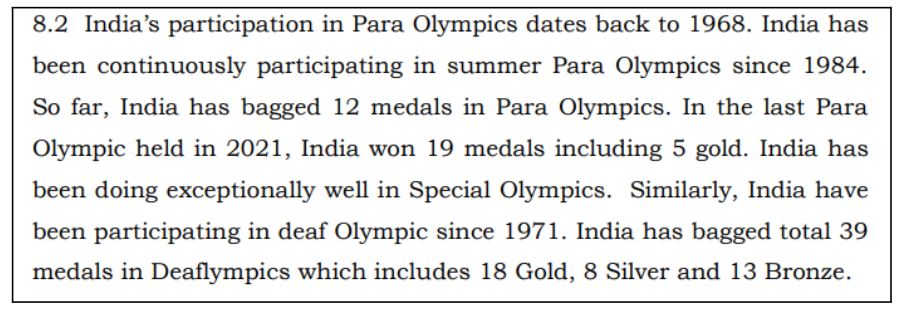The government recently released a new draft policy for Persons with Disabilities (Divyangjan), 2021. While the draft proposes multiple measures for the welfare of PwDs, it has been criticized for only talk and no action on the necessary budgetary allocation front.
The Department of Empowerment of Persons with Disabilities (DEPwD) under the Ministry of Social Justice and Empowerment, Government of India published a Draft National Policy for Persons with Disabilities (Divyangjan), 2021. The draft policy is open for comments from the public until 09 July 2022. Comments on the draft policy can be sent to panda.dk@nic.in and policy.depwd@gmail.com before 09 July 2022.
The policy has been drafted following a review of the existing 2006 policy so as to bring India’s policy in consonance with the developments that took place since then. India signed the United Nations Convention on the Rights of Person with Disabilities (UNCRPD) 2007, enacted the Rights of Persons with Disabilities Act, 2016 (RPwD) and adopted the National Education Policy, 2020. India is also bound by international protocols such as 2030 agenda of Sustainable Development Goals, Incheon Strategy for Asia Pacific Decade for Persons with Disabilities, Sendai Framework, etc.
Persons with disabilities constituted 2.2% of the Indian population according to the 2011 Census
According to Census 2011, there are 2.68 crore persons with disabilities (PwD) in India which accounts for 2.2% of India’s population. This number is expected to increase significantly as the Rights of Persons with Disabilities Act, 2016 has come into force, under which the government has added more types of disabilities, increasing the number of types from 7 in the 1995 Act to 21.

The Census also revealed that 20% of the disabled persons have a disability in movement, 19% have a disability in seeing, another 19% have a disability in hearing, and 8% have multiple disabilities. Furthermore, nearly 55% of the total disabled population, about 1.46 Crore PwDs were literates. This was 62% among males and 45% among females. Only about 8.5% of the disabled literates were graduates. The census also revealed that 36% of the total disabled persons were working. Among the male PwDs, 47% were working whereas, among female PwDs, only 23% were working.
Ministry of Health & Ministry of Social Justice have legislations dealing with PwDs
As of now, there are four major national legislations which deal with PwDs, viz; Rehabilitation Council of India Act, 1992; National Trust for the Welfare of Persons with Autism, Cerebral Palsy, Mental Retardation and Multiple Disabilities Act, 1999; and the Rights of Persons with Disabilities Act, 2016 implemented by the Ministry of Social Justice and Empowerment, and Mental Healthcare Act, 2017 implemented by the Ministry of Health and Family Welfare.
The new draft policy calls for interventions in disability prevention, education, healthcare, social security, sports, culture, recreation, and accessibility. Some of the key measures suggested in the policy have been discussed in this story.
According to the draft policy, the programmes being implemented at the national level for the prevention & control of disabilities by the Ministry of Health focus only on ‘traditional causes of disability’ such as polio, iodine deficiency, leprosy, fluorosis, deafness, and blindness. However, there are many other causes of disability too such as medical negligence, malnourishment, socio-cultural factors, impairments caused by disasters, malnourishment, etc.
Measures to make the certification process faster
The draft policy calls for a comprehensive national programme on the prevention of disability which covers not just the disabilities covered under the RPwD Act but also other medical conditions that have the potential to manifest into any form of disability. This is because a third of the disabilities in children were preventable. It also emphasized research-based surveys across locations to ensure necessary socio-medical interventions. A roadmap for the development of Cross Disability Early Intervention Centres (CDEICs) in every district has been given. These centres will also be given access to the Unique Disability ID portal for helping PwDs with the assessment and certification of disability. It also added that the district medical authorities should ensure that the disability certificate is issued within 30 days of receipt of the application. It also suggested that mobile disability certification teams be constituted at the district level to conduct certification camps for speedy certification of disabilities at a nearby locality.

Compliance with RPwD Act is mandatory for granting permission to educational institutions
With respect to education, the draft policy suggests that States/UTs should add a provision on compliance with the RPwD Act when granting permission/recognition to educational institutions. Further, it suggested that every Government/Government aided higher educational institution should ensure the implementation of 5% of reservations for PwDs. Indian Sign Language should be included along with subtitles in the Ministry of Education’s educational videos. It further suggested that a system be developed to monitor the progress of each child with a disability based on learning outcomes. The development of disability-specific course curriculum and evaluation system has also been suggested.
The policy suggests that a module on disability be included in MBBS and other medical courses. Further, it states that Ayushman Bharath- PMJAY should be aligned with the objective of the RPwD Act, and provide universal coverage for PwDs, including therapeutic services. Additionally, all healthcare institutions should be linked to a common database of PwDs under the UDID project and a mechanism should be developed for the progress of disability-specific health status in the country.
An employment exchange portal for PwDs will be developed
An employment portal for PwDs will be developed with information like skill training in different locations, vacancies, nature of job, eligibility, recruitment, etc. All government and private establishments are to report their vacancies to the Labour Ministry which will update the same in the portal.
Considering India’s performance in the Paralympics and Special Olympics, the policy calls for the setting up of dedicated sports centres in each zone with state of art facilities. Department of Culture should develop a scheme to encourage fine arts and performing arts among PwDs. Accessibility to cinema halls, malls, theatres, parks, museums, tourist places, etc. must be ensured. A tableau for Republic Day showcasing the initiative for empowerment of Divyangjan by the Department of Empowerment of PwDs has been suggested.

MoRTH will issue guidelines to make modifications to personal vehicles used by PwDs.
Regarding accessibility, the policy states that all local bodybuilding bye-laws should incorporate accessibility standards specified under the National Building Code or existent guidelines. New buildings of governments should abide by the accessibility standards at the planning stage itself. New passenger buses, railway and metro coaches, airports, etc. should also have accessibility features. Cab facilities at airports, railway stations, etc. should be made available for PwDs. Further, the Ministry of Road Transport and Highways will issue necessary guidelines for making modifications in the personal vehicles being used by PwDs as per requirement.
The policy also called for a dynamic database that provides real-time information such as the extent of the problem, level of outreach of government programmes and schemes, inadequacy in the representation of vulnerable classes at various levels etc. Such information is important for decision-making. The policy while emphasizing on research, also calls for promoting Atmanirbhar Bharat in Disability Sector for manufacturing assistive devices.
The draft policy has also attracted criticism
While the draft national policy is in line with the international protocols and instruments, it has also attracted criticism for multiple reasons. The National Platform for the Rights of the Disabled (NPRD) released a press statement stating that major portions of the policy document reiterated what was already specified by the UNCRPD, RPwD Act, 2016, and other existing schemes. It added that ‘a genuine attempt to inject new directions and initiatives seemed to be missing.’ As mentioned in the policy document, the allocation for PwDs was only 0.0039% of the GDP and no measures have been mentioned to improve this. The Centre’s contribution to disability pension is Rs. 300 per month, and no increase in this amount has been suggested in the policy. The statement notes that no concrete measures for poverty alleviation have been suggested in the policy though the connection between poverty & disability is acknowledged in the draft policy. The NPRD also stated that a policy document alone was not enough. It should be backed with budgetary allocations and monitoring mechanisms.
Featured Image: Draft National Policy for Persons with Disabilities


